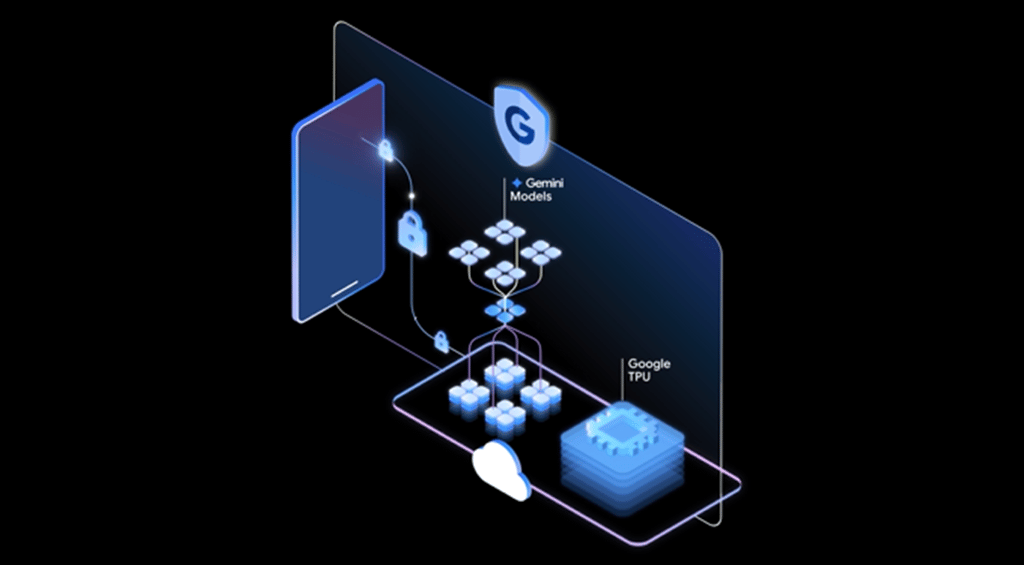Datamation content and product recommendations are
editorially independent. We may make money when you click on links
to our partners.
Learn More
This week AMD released its latest Epyc 7Fx2 Processors, and they are performance beasts (with 50% lower cost of ownership). The Cloud companies mainly took interest because they focus on performance over almost everything else, and in AMD, they appear to recognize the performance value these processors represent.
Participating in the launch were the who’s who of cloud providers, including AWS, Microsoft Azure, Google Cloud, Oracle Cloud, and Tencent Cloud. But one of the Cloud providers that caught my interest was IBM, and they have been moving aggressively of late to overcome their late arrival on the competitive field and showcase they can play with the big boys.
Cloud Storage and Backup Benefits
Protecting your company’s data is critical. Cloud storage with automated backup is scalable, flexible and provides peace of mind. Cobalt Iron’s enterprise-grade backup and recovery solution is known for its hands-free automation and reliability, at a lower cost. Cloud backup that just works.
SCHEDULE FREE CONSULT/DEMO
But there is a unique opportunity that these two companies have with each other in that AMD’s executive leadership came from IBM, and that gives them more in-depth insight into IBM’s processes and operations. The result could be a partnership that reaches legendary proportions, and I think that potential connection is worth exploring this week.
The Problems With Partnerships Between Major Vendors
One of the significant issues in the current tech segment is that the major technology suppliers are unusually powerful. Typically a company like IBM, Dell, or HPE would be so much more potent than the firms supplying them with parts leadership in the final complete product is clear. The OEM is the leader. The parts folks follow that lead.
But with suppliers like Intel and Microsoft, their power can often exceed that of an OEM, and when that happens, the tail can seem to be wagging the dog. Because they are typically more removed from customers, the result is a suboptimal offering where critical decisions were made by the parts supplier, not the OEM.
Now Microsoft gets around this in the Cloud space by having one of the leading Cloud platforms, and in the PC space with Surface. But both create other problems because Microsoft, with those offerings, is competing with their OEM partners who, and they can be vocal about this at times, aren’t pleased with that competition.
Now on the PC side, this has turned into a major annoyance. Still, on the Cloud side, mainly due to the nature of the business, the OEM’s only big problem is that Azure has such a substantial market presence. Still, Amazon and Microsoft have always had a somewhat rocky relationship with Amazon anyway.
Ideally, as an OEM, you want a parts supplier that is subordinate, but what would also be handy is a parts supplier that also understands the OEM’s internal process so the supplier can better fit within it. Often, assuming there aren’t leftover issues from the divestiture, a unit that has been sold by a company that became a parts supplier would be the best choice. But, there often is a ton of hatred in that regard between the two firms making it very difficult for them to collaborate.
AMD + IBM
But AMD didn’t spin out of IBM; several ex-IBM executives just lead them. The result is that, at least with AMD leadership, they know intimately how IBM operates, what it wants from a supplier, and even has the depth of contacts to be able to make critical calls if something appears to be going wrong.
But they won’t compete with IBM for leadership because they know IBM is closer to the customer. Also, AMD has been one of the most aggressive in terms of building custom processors for its clients, having created custom processors for Microsoft (Xbox and Surface) and Sony (Playstation).
While Microsoft is aware of this AMD capability, given they’ve used it with two products, they’ll be on top of this as well. Still, others may not (Google might be another exception), allowing this combination to result in Cloud offerings unique to IBM and uniquely powerful in the Enterprise space given the market leader, Amazon, spends a lot of their effort below the Enterprise. And, in the Enterprise, there isn’t another Cloud player that has IBM’s experience, which extends back well into the last century.
Wrapping Up:
AMD’s new Epyc processors appear to be impressive, and they certainly have impressed he major cloud providers. But IBM and AMD may be in unique positions to best use each others’ capabilities because of the deep background the top AMD executives have with IBM and IBM’s unique, extensive Enterprise background. These two vendors together could create an unmatched Cloud offering, further allowing IBM to advance in the Enterprise-Class Cloud.
If these two firms execute their potential, the result could be a game-changer in the Enterprise-Cloud space.
-
Huawei’s AI Update: Things Are Moving Faster Than We Think
FEATURE | By Rob Enderle,
December 04, 2020
-
Keeping Machine Learning Algorithms Honest in the ‘Ethics-First’ Era
ARTIFICIAL INTELLIGENCE | By Guest Author,
November 18, 2020
-
Key Trends in Chatbots and RPA
FEATURE | By Guest Author,
November 10, 2020
-
Top 10 AIOps Companies
FEATURE | By Samuel Greengard,
November 05, 2020
-
What is Text Analysis?
ARTIFICIAL INTELLIGENCE | By Guest Author,
November 02, 2020
-
How Intel’s Work With Autonomous Cars Could Redefine General Purpose AI
ARTIFICIAL INTELLIGENCE | By Rob Enderle,
October 29, 2020
-
Dell Technologies World: Weaving Together Human And Machine Interaction For AI And Robotics
ARTIFICIAL INTELLIGENCE | By Rob Enderle,
October 23, 2020
-
The Super Moderator, or How IBM Project Debater Could Save Social Media
FEATURE | By Rob Enderle,
October 16, 2020
-
Top 10 Chatbot Platforms
FEATURE | By Cynthia Harvey,
October 07, 2020
-
Finding a Career Path in AI
ARTIFICIAL INTELLIGENCE | By Guest Author,
October 05, 2020
-
CIOs Discuss the Promise of AI and Data Science
FEATURE | By Guest Author,
September 25, 2020
-
Microsoft Is Building An AI Product That Could Predict The Future
FEATURE | By Rob Enderle,
September 25, 2020
-
Top 10 Machine Learning Companies 2020
FEATURE | By Cynthia Harvey,
September 22, 2020
-
NVIDIA and ARM: Massively Changing The AI Landscape
ARTIFICIAL INTELLIGENCE | By Rob Enderle,
September 18, 2020
-
Continuous Intelligence: Expert Discussion [Video and Podcast]
ARTIFICIAL INTELLIGENCE | By James Maguire,
September 14, 2020
-
Artificial Intelligence: Governance and Ethics [Video]
ARTIFICIAL INTELLIGENCE | By James Maguire,
September 13, 2020
-
IBM Watson At The US Open: Showcasing The Power Of A Mature Enterprise-Class AI
FEATURE | By Rob Enderle,
September 11, 2020
-
Artificial Intelligence: Perception vs. Reality
FEATURE | By James Maguire,
September 09, 2020
-
Anticipating The Coming Wave Of AI Enhanced PCs
FEATURE | By Rob Enderle,
September 05, 2020
-
The Critical Nature Of IBM’s NLP (Natural Language Processing) Effort
ARTIFICIAL INTELLIGENCE | By Rob Enderle,
August 14, 2020
SEE ALL
CLOUD ARTICLES







